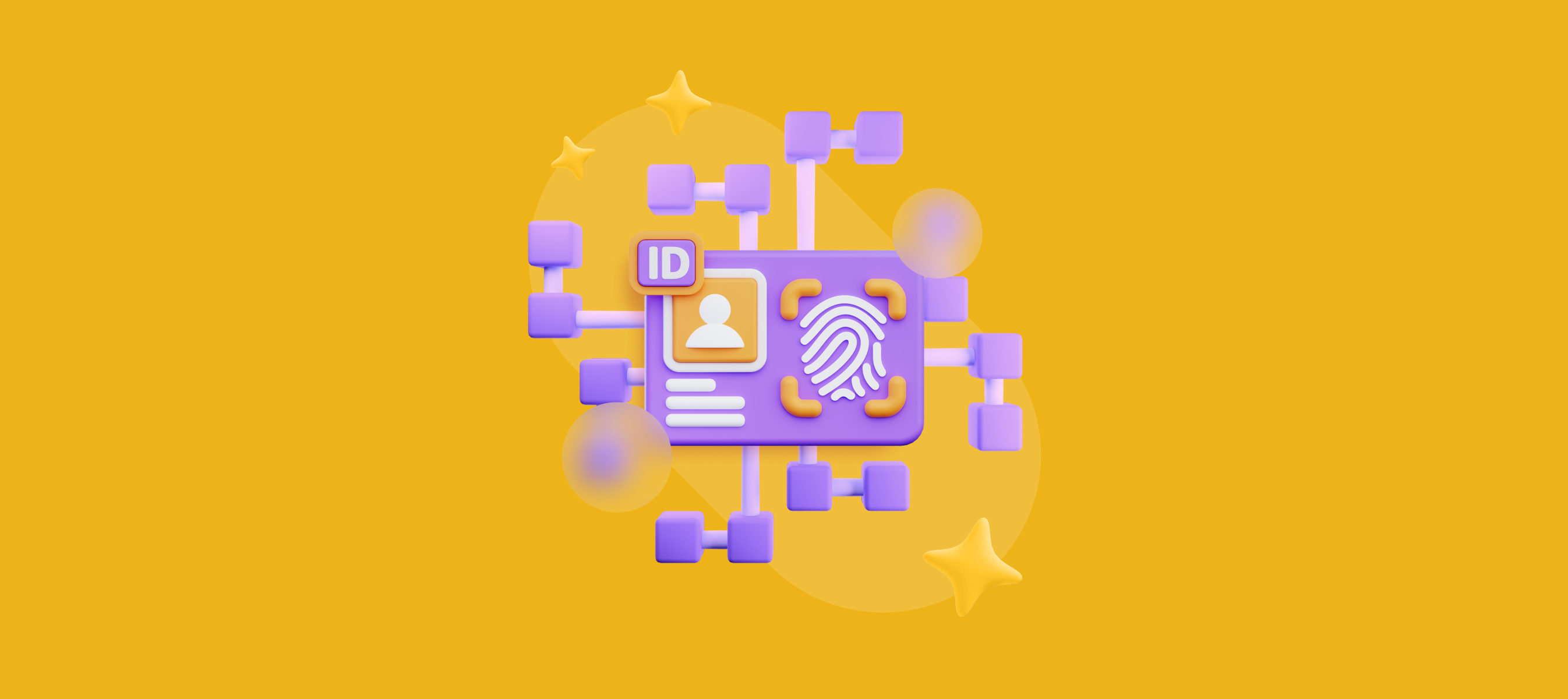Blockchain-Based IDs

This blog post will cover:
- What are the benefits of using blockchain-based IDs?
- What are the use cases for blockchain-based IDs?
- What are the limitations of using blockchain-based IDs?
- Conclusion
Blockchain technologies have a great variety of ways to be used in lots of spheres. It is proved by the rapid development of multiple projects, including those dealing with identity verification. For example, in March 2023, Polygon, a layer-2 protocol on Ethereum, launched Polygon ID, a decentralized identity verification product that uses zero-knowledge proofs.
There are several other projects with similar ideas; even though they do not operate on a large scale yet, these initiatives still give us a sneak peek into what our future might look like.
In this article, we are going to explore the topic of blockchain-based IDs (also known as self-sovereign identities, or SSI) and see how they can become a part of our daily lives.
What are the benefits of using blockchain-based IDs?
- Decentralization. Unlike traditional ones, blockchain-based IDs are not controlled by any central authority. Instead, they are stored on a decentralized network, which means that users have complete control over their own data.
- Privacy. SSIs allow individuals to share only the information they choose. This also lowers the risk of data breaches.
- Security. Blockchain technology uses cryptographic techniques to protect the data of users. This makes it difficult for unauthorized parties to access or tamper with the information.
- Interoperability. Blockchain-based IDs can be used across multiple platforms and services, eliminating the need for users to create separate identities for each service they use.
- Efficiency. SSIs can make identity verification processes easier and faster. This technology allows the provision of nearly instant confirmation of credentials.
What are the use cases for blockchain-based IDs?
Individuals
According to information from the World Bank, in 2021, around 850 million people across the globe did not have access to official identification. This is a problem for those with low income, marginalized communities, and citizens of developing countries. These people have a hard time finding a job, having access to financial services, etc.
Issuing digital blockchain IDs can change this situation for the better. With SSIs, people can easily verify their identity in a secure and decentralized manner without the need for intermediaries, so individuals without IDs who live in remote areas will have access to various services, too.
People who already have traditional IDs can benefit from having blockchain-based versions, too, because having all the relevant information at hand can ease various processes and make them faster. For example, applying for a visa, going to a doctor, verifying credit scores, voting, etc.
Companies
Businesses also benefit greatly from using SSI. First of all, this enhances security. With traditional identity management systems, personal data is stored on centralized servers, making it vulnerable. Blockchain-based IDs use cryptographic algorithms to secure personal data.
Additionally, companies can reduce the costs associated with identity verification and authentication by using blockchain-based IDs, as they eliminate the need for intermediaries – identity verification service providers. This also makes these processes easier and reduces onboarding time.
Internet of things (IoT)
IoT is the network of physical devices that have sensors, software, and connectivity which allows them to connect and exchange data with each other, as well as with other systems over the Internet. With the help of SSI, they can, for instance, have a unique digital identity stored on the blockchain to securely communicate with each other.
Moreover, blockchain-based IDs can be used to track the movement of goods and products throughout the supply chain to improve transparency and reduce fraud. Or they can also be used to manage and control smart home devices. For example, a homeowner could use a blockchain-based ID to grant access to a smart lock or to control the temperature of a smart thermostat.
What are the limitations of using blockchain-based IDs?
- Cost. Blockchain-based IDs require significant computational resources and storage capacity, which can be expensive to maintain, and they require specialized knowledge and expertise. This can be particularly challenging for organizations that are working with limited budgets.
- Scalability. As the number of users and transactions increases, so does the size of the blockchain, which can cause delays and increase costs, especially if we take into account the futuristic possibility of unified IDs for all people in the world.
Conclusion
All in all, despite certain limitations, blockchain-based IDs seem to be the right direction for moving forward. This is proved by the research published in February 2023 that claimed that the market for blockchain-based IDs is expected to grow by almost $130 million by 2030 showing an 82% growth rate during this period.
Hopefully, in the future, we will all have access to a secure and quick way of ID verification thanks to blockchain. If you want to keep reading about the usage of this technology, we also have articles about blockchain being applied to space and science.

